2018 Summer Research Experience for Teachers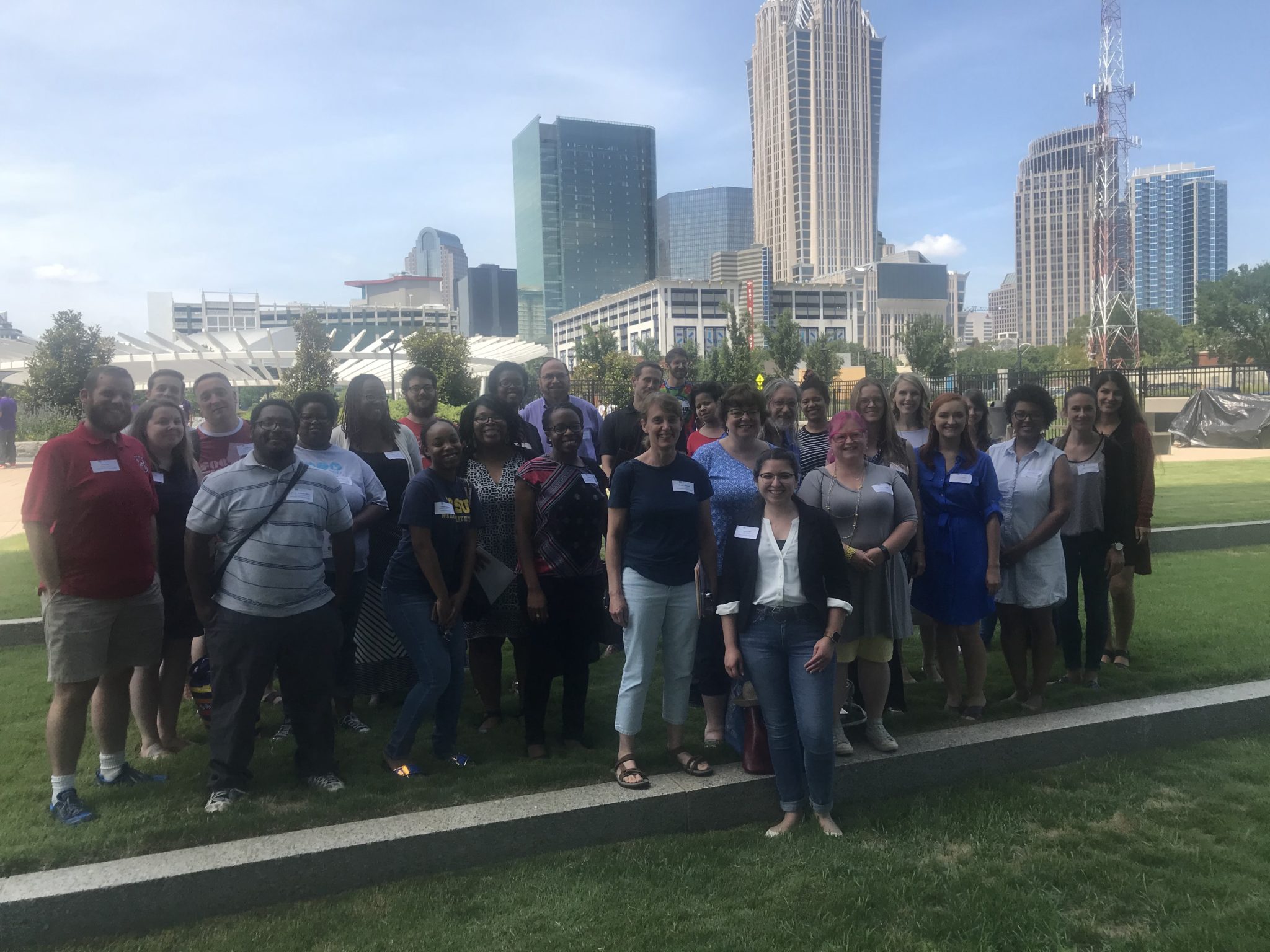
Seventeen CMS teachers are engaged in collaborative research with eight university professors this summer in CTI’s Summer Research Experience for Teachers at UNC Charlotte, Johnson C. Smith University and Queens University of Charlotte. Each teacher is supporting one of eight research teams exploring a variety of topics in the sciences and humanities. See the full list of SRET projects and their faculty, teachers and students here.
You can learn all about their work at our Summer Research Experience for Teachers Poster Session and Reception Thursday, Sept. 6, at 4:30 p.m. at Johnson C. Smith University’s New Science Center. SRET Fellows, faculty leaders and student assistants will share their discoveries in poster presentations and informal conversation. This event is free and open to all who would like to learn more about CTI Fellows’ research experience this summer. (The reception will be held as part of the regular CTI seminar dinner hour at JCSU, so Fellows there can join in the event, too.)
See below for each research group’s project reports, participants and photos.
Solving Big Problems with Tiny Threads: Sustainable Nanotechnology Research
- Sandra Ramsey, environmental science, West Mecklenburg HS
- David Toomer,5th grade, Reedy Creek ES
- Dr. Todd Coolbaugh, chemistry, Johnson C. Smith University
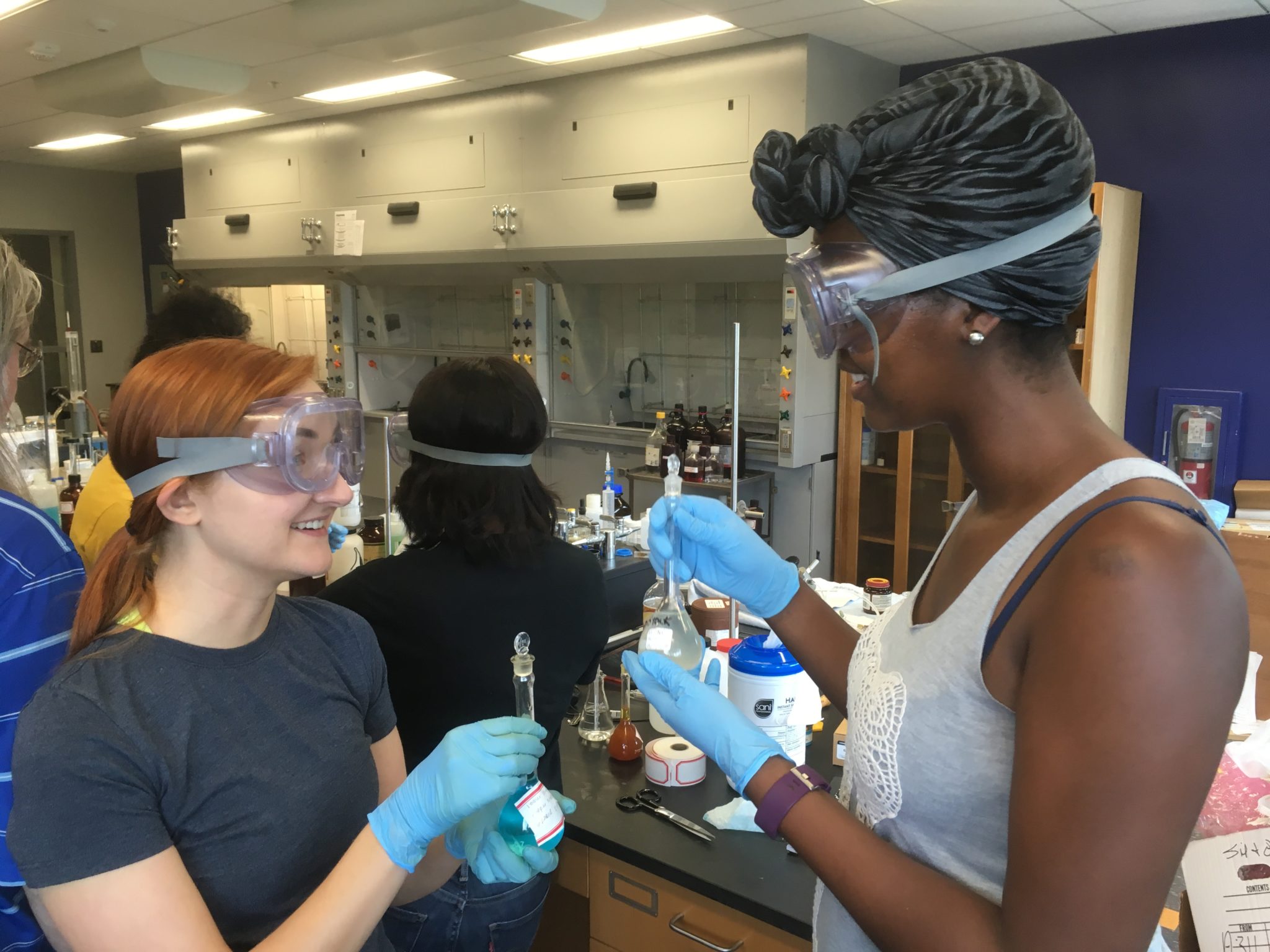 Fighting Back with Silver Nanoparticles
Fighting Back with Silver Nanoparticles
- Hanna Gainey, 5th grade, Grier Academy
- Katie Grams, environmental science, Olympic HS
- Dr. Tracy Fox-Brown, chemistry, Johnson C. Smith University
Makerspace Education: Using Digital Fabrication to Engage Second Grade Learners
- Elyse Hiatt, 2nd grade, Dorothy Vaughn Academy of Technology
- Lindsey Scheppergrell, 2nd grade, Dorothy Vaughn Academy of Technology
- Dr. David Wilson, software & information systems, UNC Charlotte
- Martha Gwinn, history, Harding University HS
- Liz Ratliff, mathematics, East Mecklenburg HS
- Jackie Smith, forensic science, W.A. Hough HS
- Dr. Susan Trammell, physics & optical science, UNC Charlotte
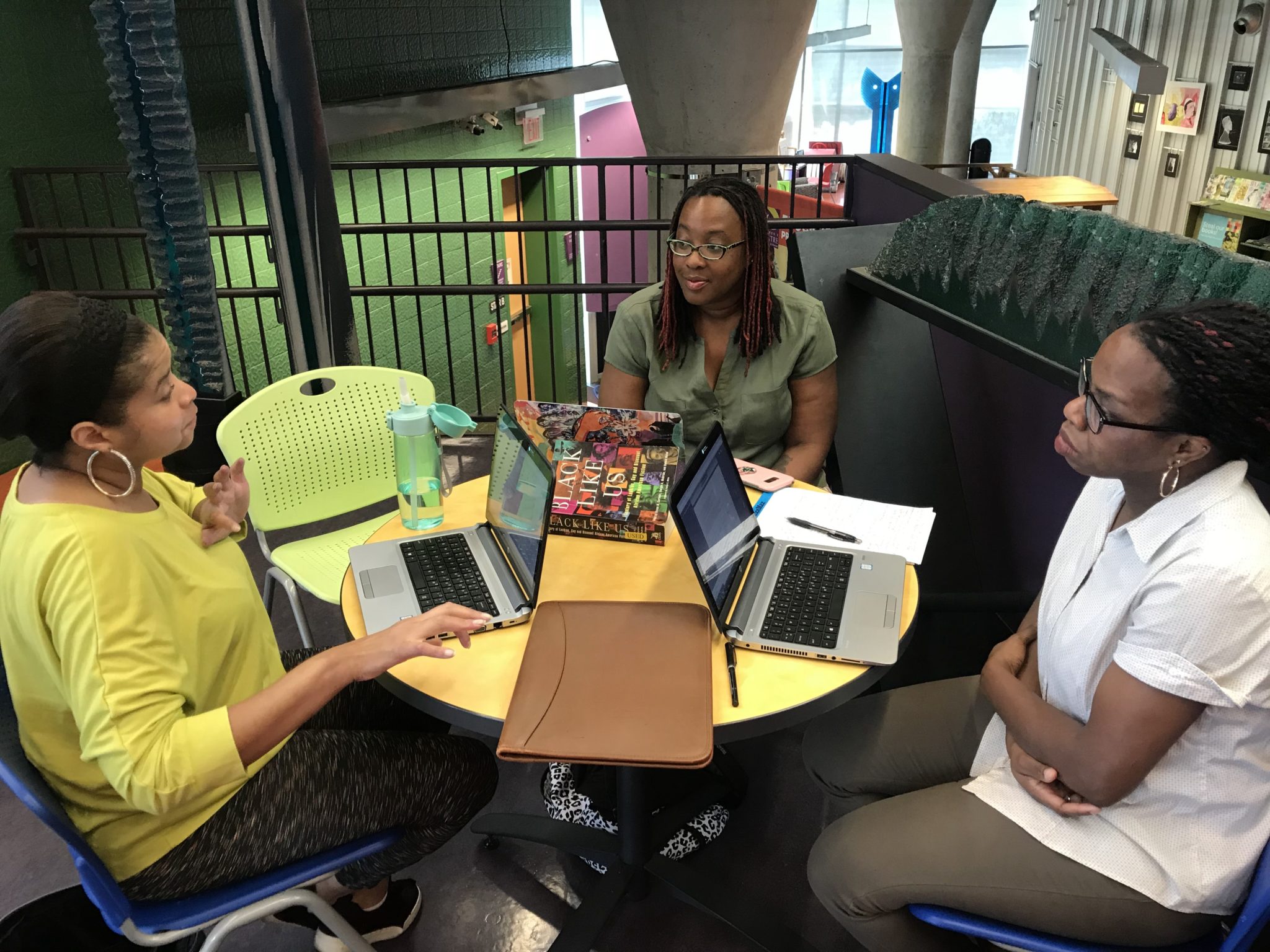 Black Literature, Girlhood and Community Engagement
Black Literature, Girlhood and Community Engagement
- Tiffany Craig, special education, Barringer Academic Center
- Effuah Sam, theatre arts, Ranson IB MS
- Dr. Janaka Lewis, English, UNC Charlotte
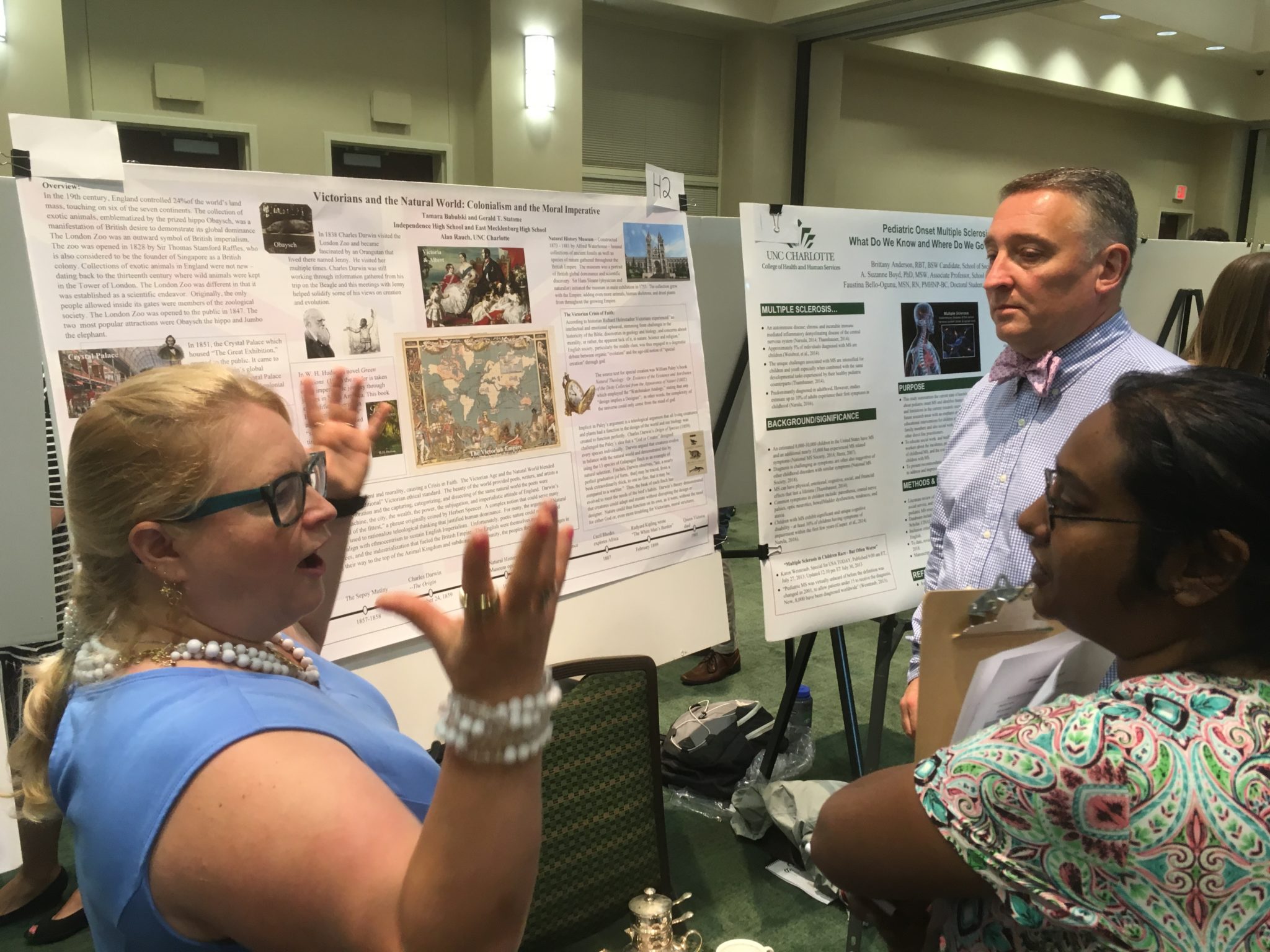 Victorians and the Natural World: Colonialism and the Moral Imperative
Victorians and the Natural World: Colonialism and the Moral Imperative
- Tamara Babulski, world history, Independence HS
- Gerald (Todd) Statome, philosophy, East Mecklenburg HS
- Dr. Alan Rauch, English, UNC Charlotte
Evaluation of the Potential Role of Organochlorines in the Death of Raptors
- Emily Burrell, mathematics, Piedmont Open IB Middle School
- Dessean Nardone-White, science, North Mecklenburg HS
- Dr. Scott Weir, biology, Queens University of Charlotte
Synthesis of Lignin-Derived Ionic Liquids and Their Evaluation as Biomass Pretreatment Solvents
- Erika Williams, CTE/Health, Phillip O. Berry Academy of Technology
- Carla Aaron-Lopez, art, Whitewater Middle School
- Dr. Aaron Socha, chemistry, Queens University of Charlotte
| NAME | DATES | HRS/WEEK | # TCHRS | POSTER | RESEARCH |
| Susan Trammell | 6/18-7/13 | 20 | 3 | YES | Biophysics/Cancer Treatment |
| Janaka Lewis | 6/18-7/13 | 20 | 2 | YES | African American Children’s Literature |
| Todd Coolbaugh | 6/18-7/13 | 20 | 2 | YES | Sustainable Nanotechnology |
| Tracy Brown | 6/18-7/13 | 20 | 2 | YES | Cellulose Nanomaterial |
| Scott Weir | 6/18-7/13 | 20 | 2 | YES | Amphibian Biology/Toxicology |
| Alan Rauch | 6/18-7/13 | 20 | 2 | YES | Victorians & the Natural World |
| Dave Wilson | 6/18-7/13 | 20 | 2 | YES | Makerspace/Digital Design |
| Aaron Socha | 6/18-7/13 | 20 | 2 | YES | Biodiesel/Renewable Materials |
- Susan Trammell (Physics at UNC Charlotte) is offering a 3-week experience for 3 teachers in her research laboratory at UNC Charlotte. A remaining significant challenge for cancer surgery is ensuring that no residual malignant tissue is left behind after surgery, as recurrent tumors lead to high mortality rates. The goal of this project is to develop a new imaging modality – hyperspectral imaging – that can be used during surgery for cancer detection and resection margin delineation. During the summer project, Fellows will work with Susan and her graduate students to improve the design of a prototype single pixel HSI system. In addition, they will test image acquisition though a coherent fiber bundle to assess the potential of using single pixel HSI during minimally invasive procedures.
- Janaka Lewis (English at UNC Charlotte) is offering a Black Girlhood, Literature and Community Engagement at UNC Charlotte. This research project will look at literature that is used to represent black girlhood, specifically to represent diversity in K-12 classrooms but also to look at how representations of trauma, some of which are addressed in community programming, are mediated through literature. In texts such as Sapphire’s PUSH and Toni Morrison’s The Bluest Eye, traumas are named explicitly, but what are other texts that represent a range of experience, and, more importantly, how can these be used in both school and community initiatives? Along with the faculty member and student, teachers will come up with a list of texts but also explore critical and curricular engagement opportunities using the texts they find. Engagement may include finding critical texts/articles or developing specific themes and curricula that the readings might address and how. Public library (including Imaginon uptown) and UNC Charlotte libraries will be used. This research experience will be particularly relevant for teachers in elementary grades, but is open to teachers of middle school and high school grades too.
- Todd Coolbaugh (Chemistry at Johnson C. Smith University) is offering Solving Big Problems with Tiny Threads: Sustainable Nanotechnology Research in his research laboratory at Johnson C. Smith University. Todd’s interest is in understanding the interation between CNF and metal ions or charged molecules in solution. Research activities will include studies aimed at characterizing the removal of metal ions and charged molecules from solution as well as characterization of solid films.
- Tracy Brown (Chemistry at Johnson C. Smith University) is offering Manipulating the Performance of Cellulose Nanomaterials via Photocatalytic Chemical Reduction and Surface Modification in her research laboratory at Johnson C. Smith University. This summer we will continue our efforts to understand, manipulate, and utilize Cellulose nanomaterials in various applications. One line of investigation will focus on furthering our understanding of the formation of reduced silver nanoparticles (Ag NPs) via a photocatalytic chemical reduction with CNCs and CNFs, as demonstrated in the photographs.
- Scott Weir (Biology at Queens University) is offering two potential research projects this summer. One is called Comparative Toxicity of Pesticides to Temperate and Tropical Amphibians in his research laboratory at Queens. It is imperative to determine if a tropical amphibian species is more sensitive to pesticides than species native to the temperate northern hemisphere. This project will use standard toxicity testing approaches to compare the short-term toxicity of four pesticides to a tropical and North American amphibian. Scott is also offering Organochlorine Pesticide Residues in Birds of Prey in the Southeastern United States teachers in his research laboratory at Queens University. This project is twofold: 1) to establish a chemical analysis method that is robust and repeatable to provide an outlet to test samples for the Carolina Raptor Center that can confirm the levels found by other labs to which samples have previously been sent and 2) to eventually test other media (water, soil, mice, etc) for organochlorine contamination to determine where the birds are getting their contamination.
- Alan Rauch (English at UNC Charlotte) is offering The Victorians and the Natural World at UNC Charlotte. In this project, he wants to explore Victorian science, literature, and culture through the lens of the living world as it was “imagined” by the Victorians. The bigger question, however, is what did the typical Victorian reader know about nature and the environment, and how did they understand it in relationship to themselves, to the English countryside, to the idea of industrialism, and, of course to “empire”?
- Dave Wilson (Computer Science at UNC Charlotte) is offering Making for STEM Learning and Engagement. In this project, teachers will be taught basic principles of digital design and fabrication through hands-on lab activities in the college Makerspace (e.g., 2D/3D modeling, 3D printing, laser cutting, manipulatives, basic electronics, Arduino/Raspberry Pi). These beginning hands-on lab activities are based on existing training and workshop materials currently used in the Makerspace. Teachers will work with Dr. David Wilson and a graduate student in computer science to conduct research on STEM learning within academic Makerspaces, including development and evaluation of new activities and studying the relationship between informal and formal learning within such environments. As part of the research, teachers will focus on a particular STEM learning topic or challenge problem and develop novel Making activities to ground the fundamental STEM concepts and related design thinking. The research will involve piloting the activities and user study evaluation with student users of the Makerspace. Expected outcomes are: (1) an understanding of academic makerspaces, and how such a space may be developed or used as a teaching resource in the teacher’s own institution; (2) a new set of Making activities that can be used for STEM learning and engagement in the college Makerspace as well as brought back to the teacher’s classroom; (3) research results that may be submitted for publication.
- Aaron Socha (Chemistry at Queens University) is offering Renewable Materials: Making Bio-Based Ionic Liquids and Fuels. Research in the Socha Lab is focused on the production of chemicals from renewable materials. Specifically, we are interested in making bio-based ionic liquids and fuels. Ionic liquids are salts with melting points < 100oC, and a number of interesting applications. Biodiesel is a diesel fuel replacement made from vegetable oils, and ethanol is a replacement for gasoline fuel made via fermentation of glucose by yeast. We try to engineer “closed-loop” systems by using by-products of our processes as catalysts and/or solvents for our other processes. One example is the use of glycerol (the by-product of biodiesel and soap making) as a catalyst for making more biodiesel from Queens Cafeteria Cooking Oil. We have also pioneered the use of lignin and hemicellulose-derived ionic liquids for the production of fermentable sugars (e.g. glucose and xylose). Long-term projects in the lab often involve a combination organic synthesis, process engineering and microbial cell growth.
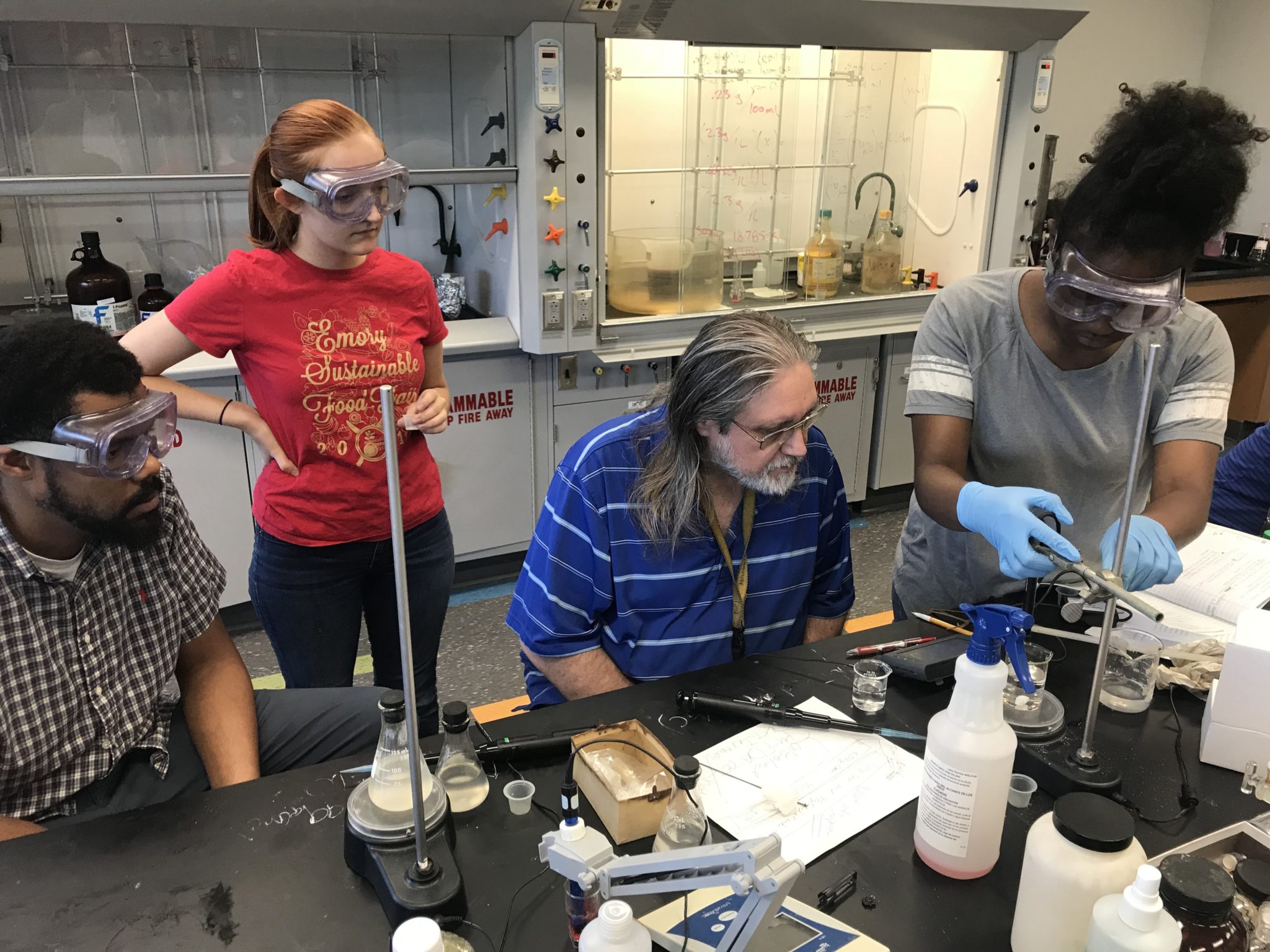


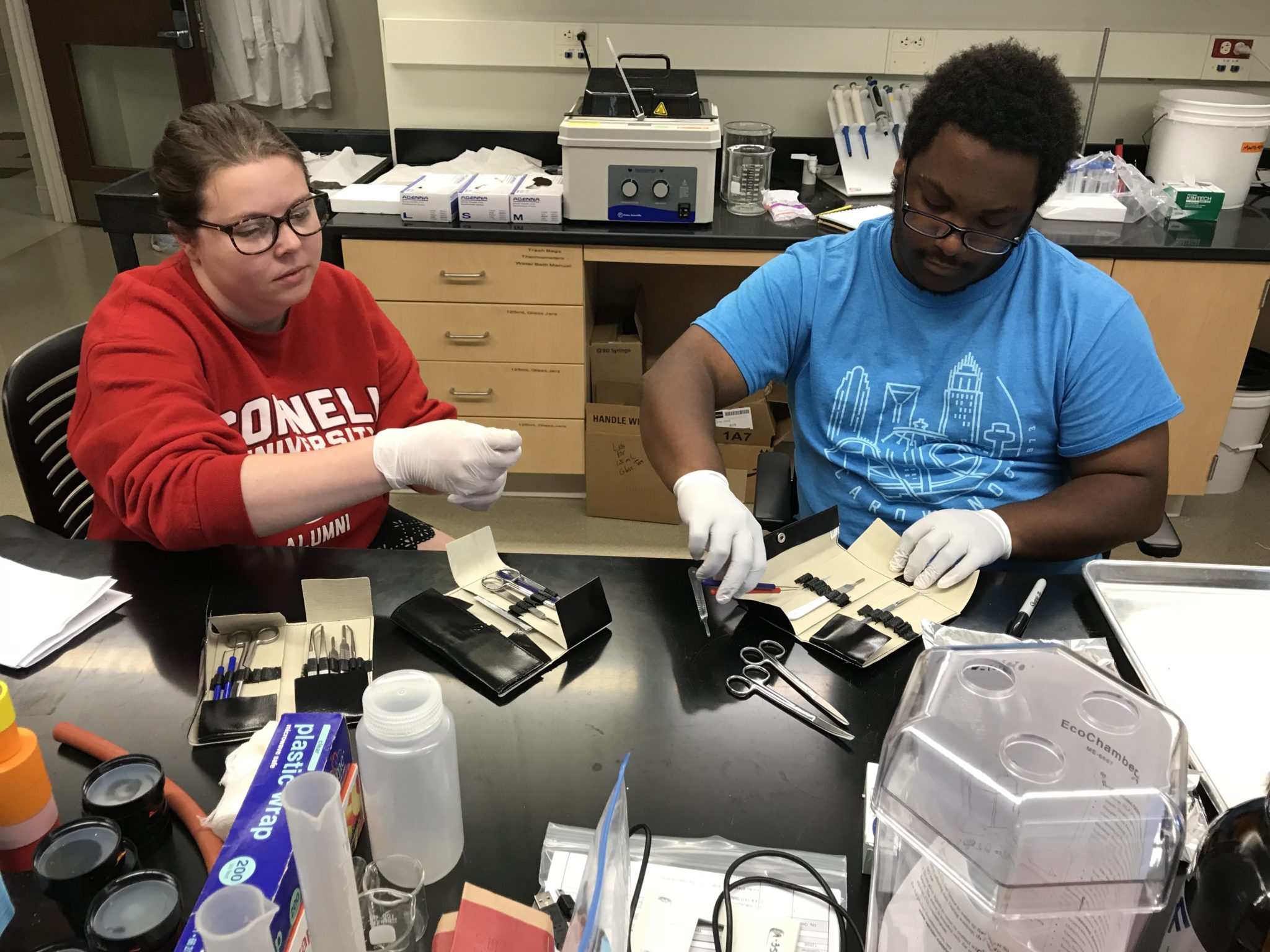
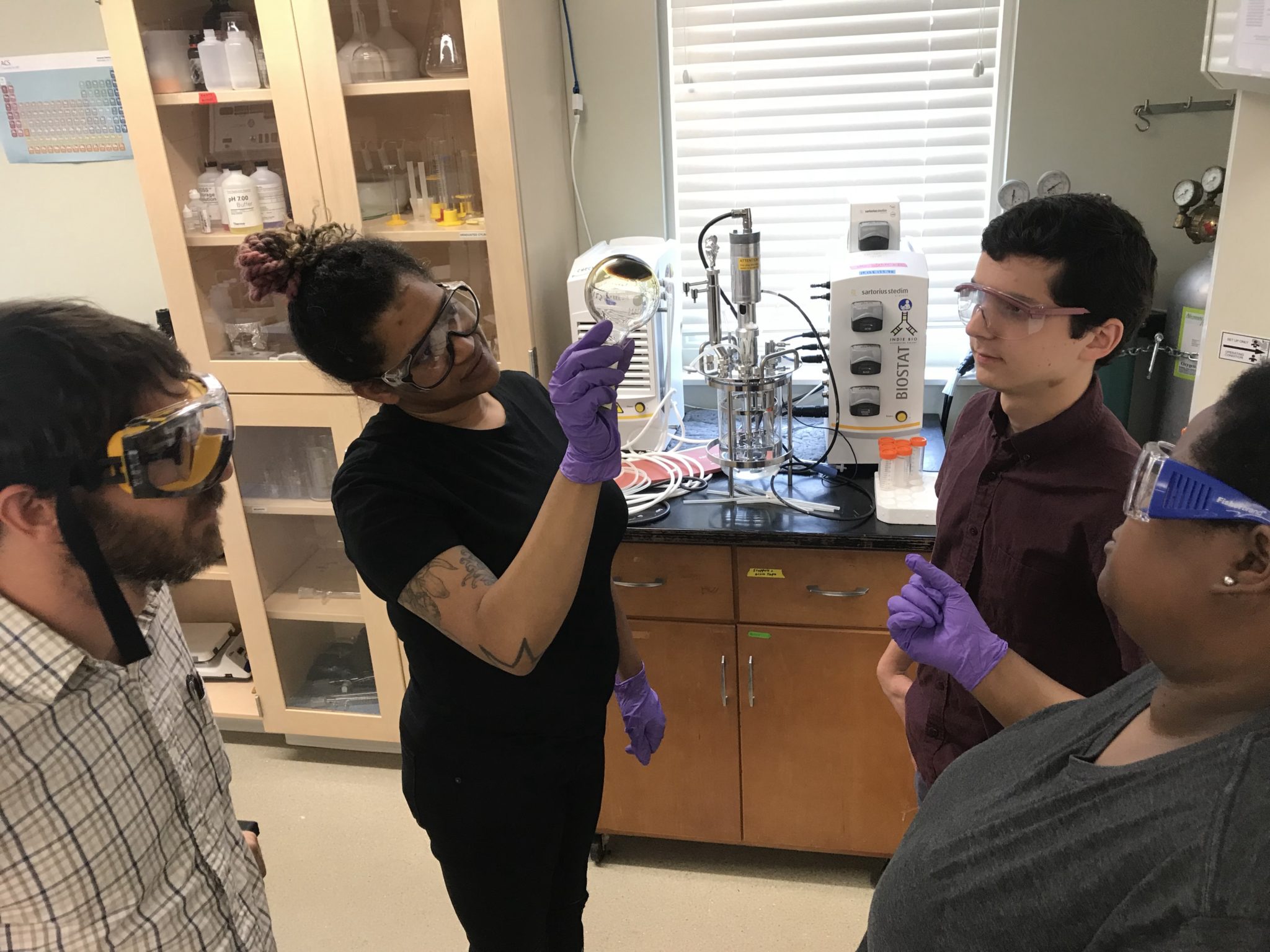
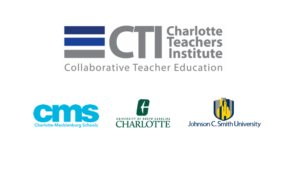
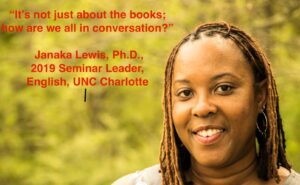

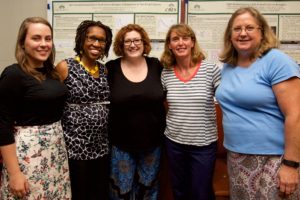
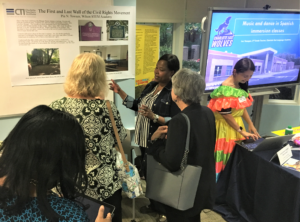
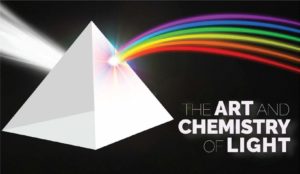




 Home
Home